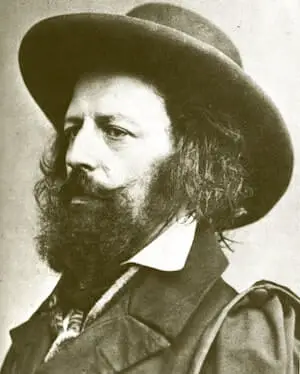The proverbial saying ‘It’s better to have loved and lost than never to have loved at all’ has a straightforward literal meaning. Even the pain of a lost love is worth bearing if one can first experience the joy of love.
It’s better to have loved and lost than never to have loved at all
What's the meaning of the phrase 'It's better to have loved and lost than never to have loved at all'?
What's the origin of the phrase 'It's better to have loved and lost than never to have loved at all'?
The line ‘It’s better to have loved and lost than never to have loved at all’ comes from Alfred Lord Tennyson’s poem In Memoriam:27, 1850:
I hold it true, whate’er befall;
I feel it, when I sorrow most;
‘Tis better to have loved and lost
Than never to have loved at all.
Alfred Lord Tennyson is now remembered as a rather dour old sage of the Victorian era. Nevertheless, he gave us two commonly used lines about love. As well as ‘It’s better to have loved and lost than never to have loved at all’ he also wrote of ‘a young man’s fancy‘ in his 1842 poem Locksly Hall:
In the spring a livelier iris changes on the burnished dove;
In the spring a young man’s fancy lightly turns to thoughts of love.
Related phrases and meanings
About the Author

Phrases & Meanings
A-Z
A B C D E F G H I J K L M N O P Q R S T UV W XYZ
Categories
American Animals Australian Bible Body Colour Conflict Death Devil Dogs Emotions Euphemism Family Fashion Food French Horses ‘Jack’ Luck Money Military Music Names Nature Nautical Numbers Politics Religion Shakespeare Stupidity Entertainment Weather Women Work
How did we do?
Have you spotted something that needs updated on this page? We review all feedback we receive to ensure that we provide the most accurate and up to date information on phrases.
